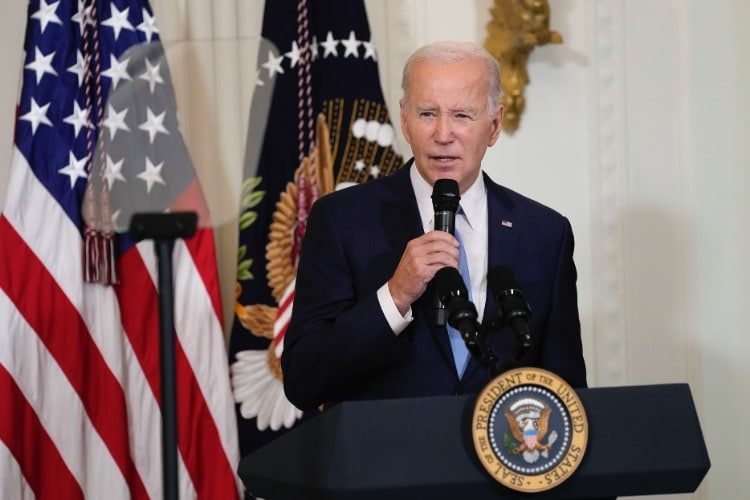
Republicans in the House of Representatives introduced the Secure the Border Act of 2023 (H.R. 2) last week as part of their Commitment to America plan that focuses on illegal immigration, crime, and national security.
The legislation would end asylum fraud, close immigration loopholes, mandate E-Verify to ensure legal employment, and prevent “catch and release,” which has allowed thousands of illegals to enter and remain in the country. The bill also requires the Department of Homeland Security (DHS) to resume border wall construction, supports local law enforcement, and bolsters Customs and Border Protection (CBP) personnel, resources, and technology.
House Committee on Homeland Security Chairman Mark E. Green (R-Tenn.) said in a statement:
This legislation demands transparency from DHS and ensures CBP and border states have the infrastructure, personnel, and technology needed to take back control of our sovereign borders. It’s time to put the cartels in their place and put the protection of our communities first. This border crisis is one of the greatest security threats facing the American people. Republicans on the Homeland Security Committee won’t stand by and let it continue. It is critical that we deliver on our Commitment to America by passing the Border Reinforcement Act of 2023 — there is far too much at stake to not get this right.
Michael McCaul (R-Texas) added, “President Biden and Secretary Mayorkas have abdicated their duty to protect the homeland. Thankfully, the American people entrusted House Republicans to pick up the administration’s slack. Today we are delivering on our promises by introducing this practical border legislation, drafted alongside those who know best — our outstanding border patrol officers.”
The Biden administration was quick to respond to the House Republican-sponsored legislation issuing an statement opposing the bill on Monday, with a threat of a veto, declaring the bill would make “elements of our immigration system worse.”
The White House recognized that “a successful border management strategy must include robust enforcement at the border of illegal crossings, deterrence to discourage illegal immigration, and legal pathways to ensure that those in need of protection are not turned away to face death or serious harm.”
However, the Biden administration shared that H.R. 2 “does nothing to address the root causes of migration, reduces humanitarian protections, and restricts lawful pathways, which are critical alternatives to unlawful entry.”
The White House statement claimed the bill “would cut off nearly all access to humanitarian protections” and would make “processing less efficient by prohibiting the use of the CBP One mobile application to process noncitizens.” They added that the bill would also restrict the “DHS’s parole authority,” prohibiting programs such as “Uniting for Ukraine.” In addition, the Biden administration stated the bill would also reduce authorized funding for essential programs that assist state and local governments in reducing pressure at the border.
Overall, the White House welcomed “Congress’ engagement on meaningful steps to address immigration and the challenges at the border,” but claimed the bill “would make things worse, not better,” adding that this “bill does very little to actually increase border security while doing a great deal to trample on the Nation’s core values and international obligations.”
Biden’s veto threat will not help the tense situation along the southern border as the nation prepares for this week’s lifting of the pandemic-era Title 42 policy, that expelled migrants without an asylum hearing.
There are thousands of illegal aliens expected to cross the border once the policy expires, which led to Biden’s decision to send 1,500 military personnel to the border. According to White House Press Secretary Karine Jean-Pierre, the military personnel will assist in data entry, warehouse support, and other administrative tasks so that U.S. Customs and Border Protection can focus on border security.
With the impending surge of illegal immigrants that will cross our nation’s southern border, one can hope that this will finally lead President Biden to work with Congress on truly securing our borders. He should abandon his veto threat and sign H.R. 2. It’s time for Biden to adhere to his sworn duty under Article IV, sec. 4 of the U.S. Constitution, which guarantees that the federal government will protect every “State in this Union” against invasion.





